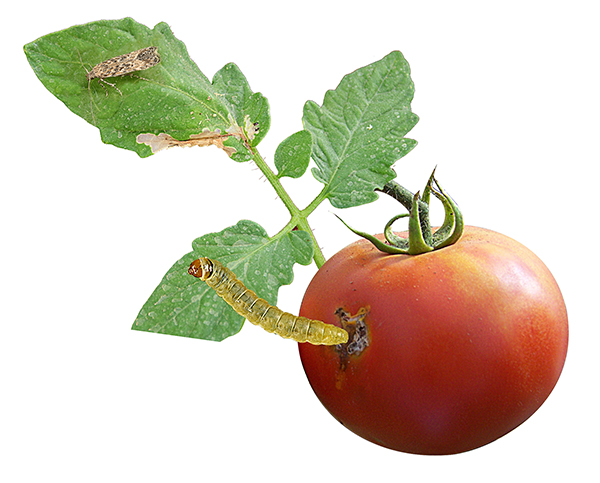Integrated Sustainable Production Of Tomatoes (ISPOT) in Kenya

Tomato (Solanum lycopersicum L) production is of significant importance in Kenya and is practiced in several counties but major production is concentrated in Kirinyaga and Kajiado counties. The cultivation is a major source of income, employment, nutrition and food security for millions of farmers and is mainly done by small and medium scale farmers. Despite its socio-economic importance, tomato production is constrained by several factors such as soil fertility, pests and diseases. To counter these challenges, farmers rely on indiscriminate, widespread, calendar application of synthetic chemical and inorganic fertilizers and pesticides. This has resulted in adverse effects to human and environmental health. Though icipe and partners have availed an IPM package to manage the most destructive pest of tomatoes, the invasive Tuta absoluta which causes 100% losses in tomato if not controlled, farmers are still applying various toxic synthetic pesticides to manage other pests and diseases. Tomato plants require significant levels of nutrients to support fruit formation and growth, thus farmers use large quantities of inorganic fertilizers which acidify the soil and toxify water bodies. The practice heavily exposes farm workers to toxic pesticides and results in huge pesticide residues in tomatoes reaching the market. To ameliorate this problem, the current project has been formulated to provide an ecologically friendly integrated soil fertility, pest and diseases management strategy in producing safe, pesticide free tomatoes. The approach is holistic, as it addresses issues of soil nutrition and also seeks to manage various insect pests and diseases through environmentally friendly tactics. Men, women and youths are involved in demonstration farms established in the five counties of Kirinyaga, and thousands of farmers are learning and appreciating the safe production of tomatoes through prudent practices. This is in perfect harmony with the FAO’s Integrated Production and Pest Management (IPPM) programme which encourages farmers to reduce or eliminate the use of toxic synthetic pesticides in agriculture. This links with the central aim of Biovision projects, which promotes the development, dissemination and application of sustainable ecological practices, enhancing the health of people, animals, plants and the environment at large. In the same vein, icipe subscribes to the use of synthetic pesticide alternatives and has been instrumental in IPM involving biological control.
Donor:
- Biovision Foundation
Partners:
- County Government of Kirinyaga
- The Real IPM Co.(Kenya) Ltd
- Safi Organics
Scientists:
- Samira A. Mohamed (sfaris@icipe.org)
- Shepard Ndlela (sndlela@icipe.org)
- Fathiya Khamis (fkhamis@icipe.org)

